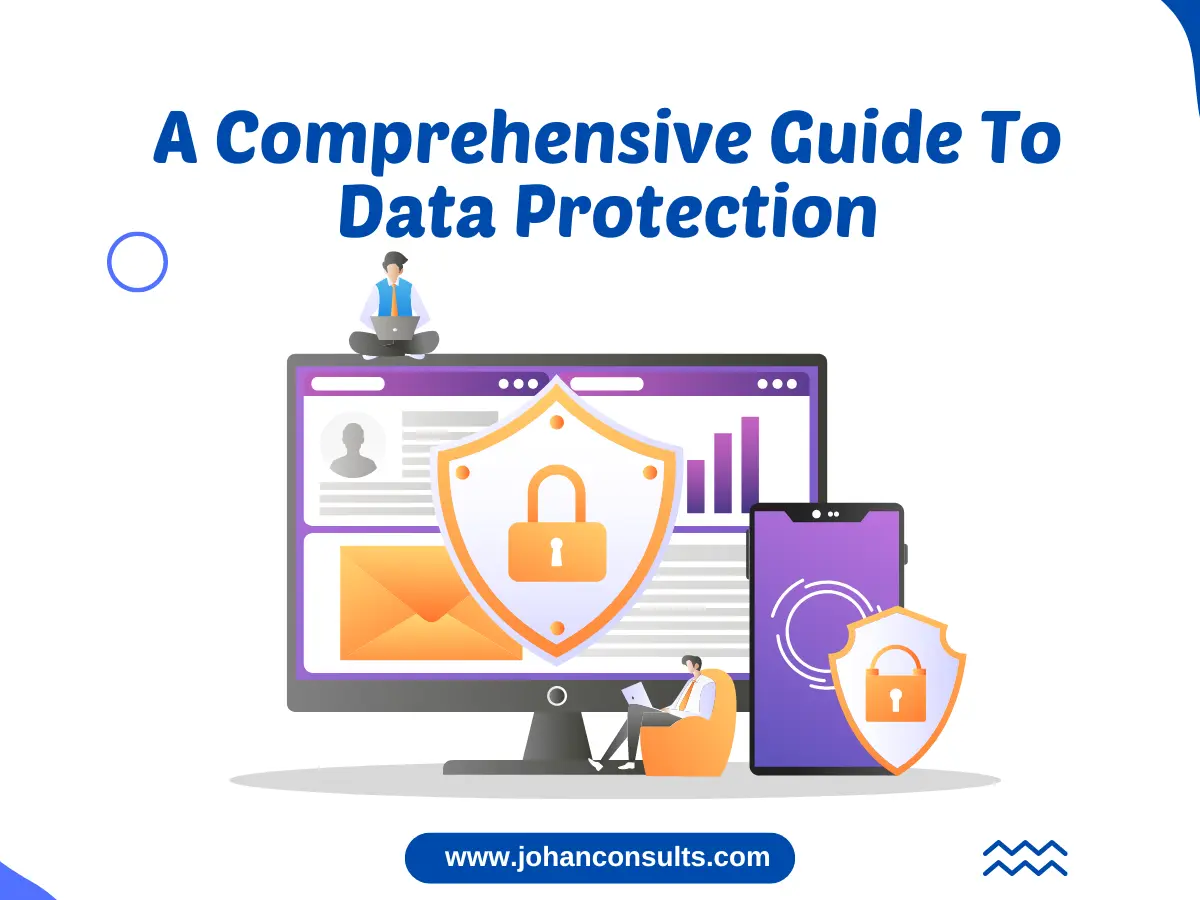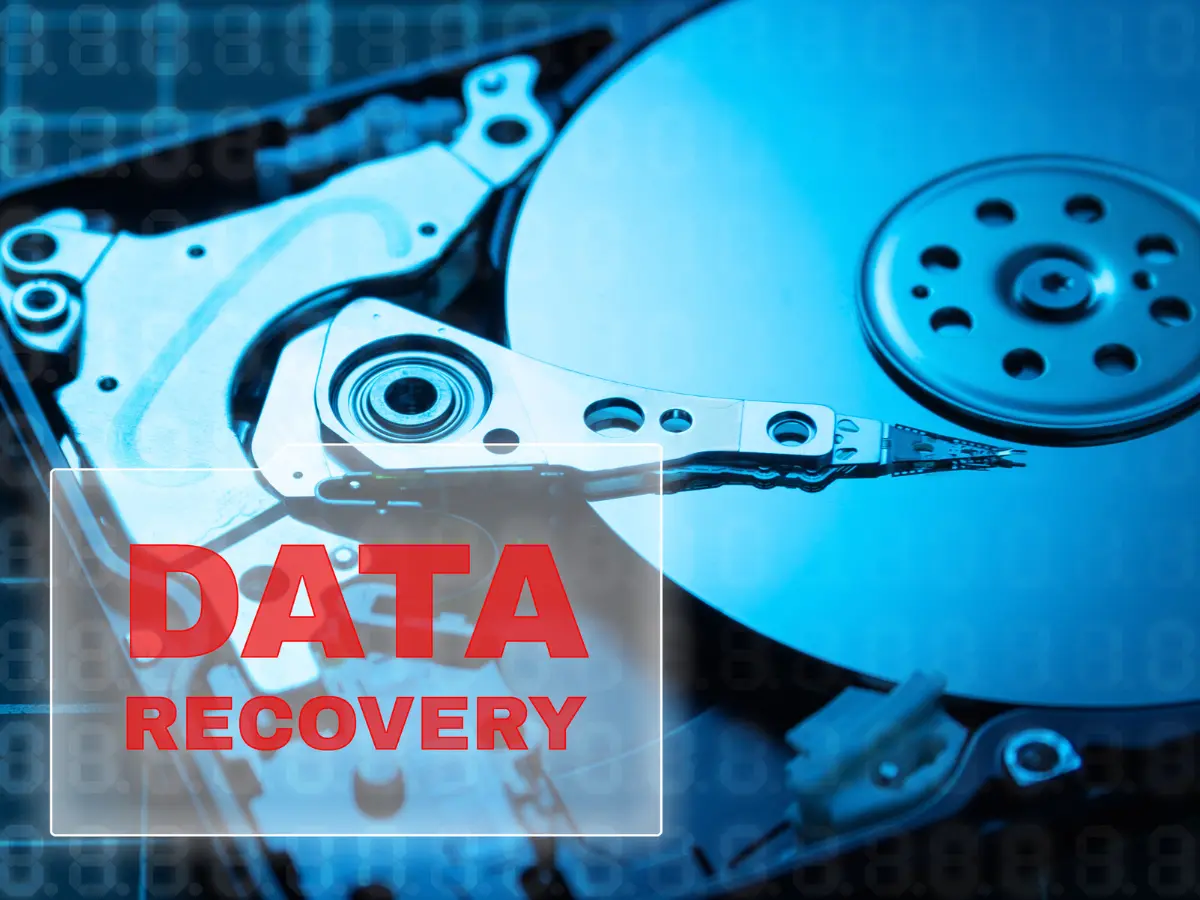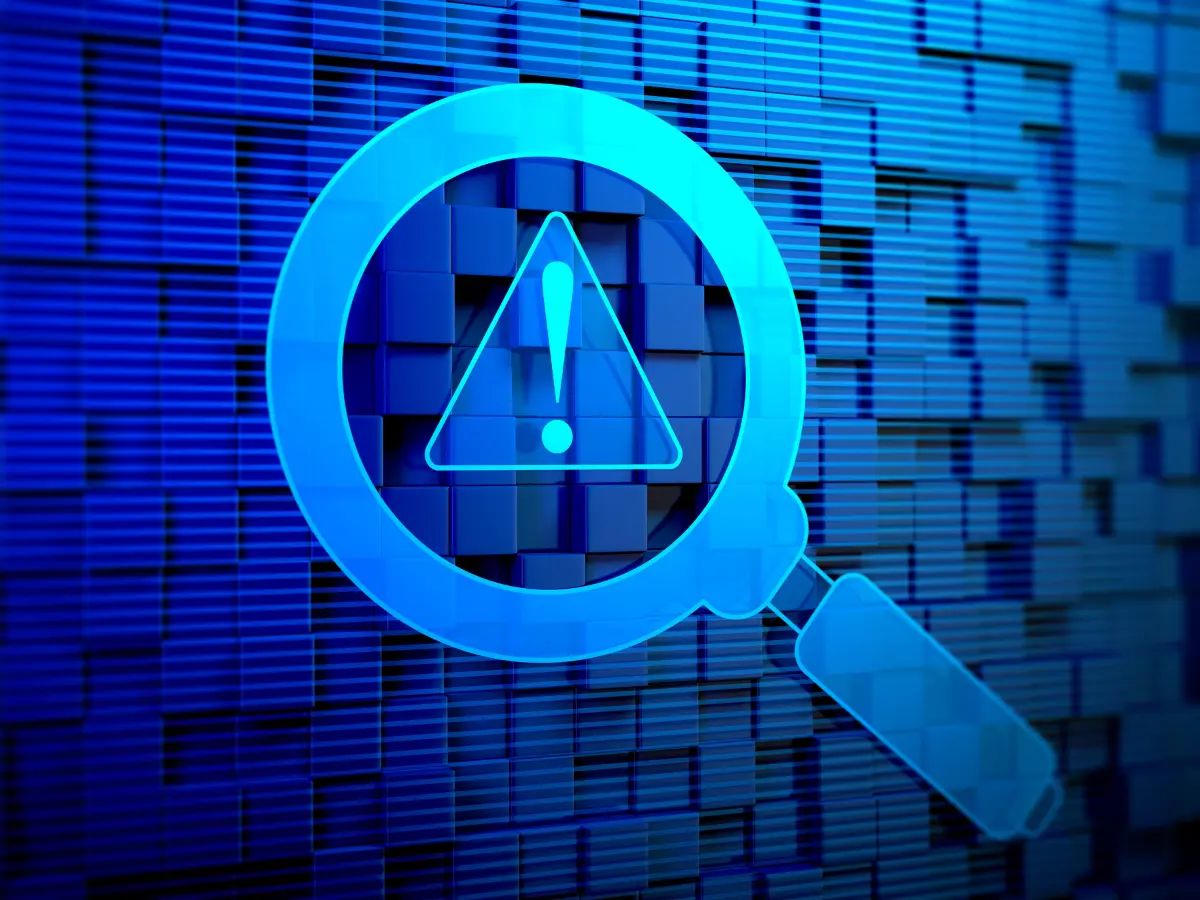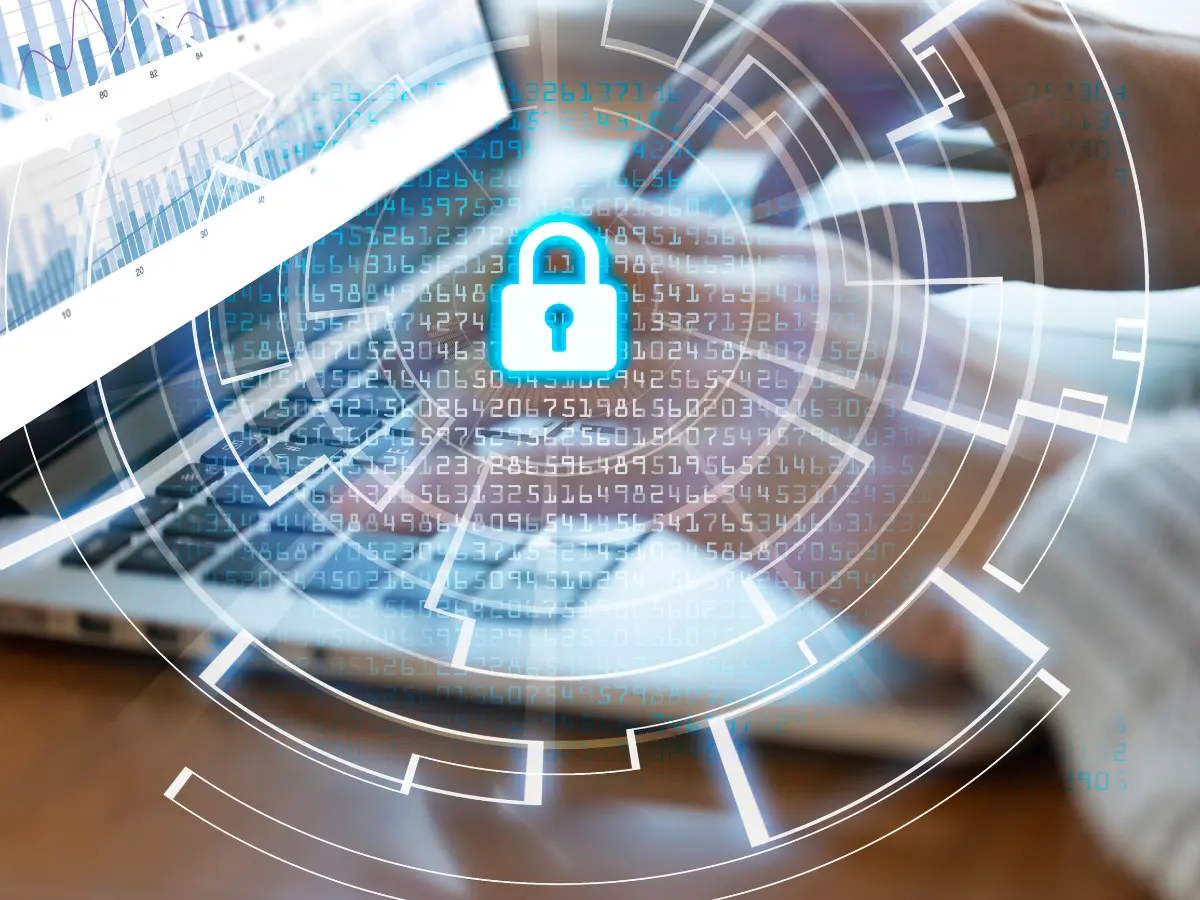The workforce is evolving rapidly with innovations coming up—remote and hybrid jobs, use of AI tools, etc.—and data is the fuel for it all. The entirety of every organization (small, medium, and large-scale) depends on data. In fact, it’s oxygen in the business world. This priceless nature of data makes it a sitting target for individuals with negative intentions. Therefore, data protection is a must.
As simple as it sounds, data protection can be tricky when done in ignorance. In this article, you will find the information you need to protect your organization’s data.
What is Data Protection?
Data protection, often used interchangeably with the term “data security,” is the process of safeguarding sensitive information about an identified subject. This information includes names, ages, occupations, health records, financial details, etc.
Since the growth of organizations depends heavily on data utilization and storage, it is paramount that the gathered data be defended against a host of problems. Problems such as data corruption and compromise, and fatal loss due to cyberattacks, human error, and system shutdown.

Now its primary aim is not only to prevent loss but to ensure the data is accessible, reliable, and recoverable. Let’s see why data protection is so important.
Why Data Protection is Important
“In industry circles, consumer data is often compared to plutonium, which is powerful and valuable but dangerous to the handler if abused.” This is a statement by Mike Pedrick, vice president of cybersecurity consulting at managed security services provider Nuspire.
Courtesy of the data quantity generated (approximately 2.5 quintillion bytes of data daily) and new work modes (remote, hybrid, etc.), safeguarding data is more advanced than a few years ago. Hence, laying some ground rules became a difficult task.
The Ponemon Institute’s Cost of Data Breach Study found that, on average, the damage caused by a data breach in the USA was $8 million. The impact of the average data incident reaches 25,575 user accounts, resulting in a severe loss of customer trust and subsequently stifling the company’s growth.
Also, in the first six months of 2023, ransomware extortion totaled $176 million more than the entire previous year. These statistics show the tragic financial and reputational impacts of data loss and breaches to organizations.
Looking at the disadvantages of data compromise and loss. Its best organizations develop and implement a foolproof protection system.
7 Principles of Data Protection
Just like every other aspect of life, safeguarding data comes with principles. And these principles are derived from the UK GDPR. Why? Most of the laws protecting data around the world, simply put, are adaptations of the UK GDPR.
These are the seven principles guiding data protection under the GDPR that you should know
1. Lawfulness, Fairness, and Transparency
This means that any information and communication concerning the processing of the collected data should be easy to understand and in clear, plain language.
2. Purpose limitation
This principle simply means that personal data collected can only be used for legitimate purposes. And such reasons must be specified. Also, the data collected cannot be used for any other reasons incompatible with the specified purposes.
3. Data Minimization
Data should be processed only if the purpose cannot be fulfilled by any other means. This limits data processing to what is adequate and necessary for the purpose.
4. Accuracy
All personal data collected by controllers (individuals, private entities, public commissions, agencies, etc.) must be stored accurately and up-to-date. Any inaccurate data is to be erased or corrected without delay.
5. Storage Limitations
Personal data is not to be kept longer than necessary for the purposes for which it is collected and processed. To abide by this principle, organizations are advised to place a time limit on such data, after which it is reviewed or erased.
6. Integrity and confidentiality
Making use of appropriate measures, organizations should ensure personal data is well protected against unauthorized access, unlawful use, and loss, damage, or destruction. The security and confidentiality of the data are first and foremost concerns during processing.
7. Accountability
Lastly, controllers must be able to take responsibility for the processing of data and be able to show their compliance (through appropriate records and measures) with the previously mentioned principles.
In addition to the above principles, the laws governing the protection of data have other requirements. For instance, organizations have to conduct Data Protection Impact Assessments (DPIA) under certain conditions.
Why are the Data Protection Principles important?
These principles act as a solid foundation for building an efficient data protection system and ensuring compliance with the GDPR.
Failure to comply with these principles is punishable with sizable fines, which can be 4% of the global annual turnover of the defaulting organization or up to €20 million, whichever is higher at the time.
How to Protect Data in Your Organization
While it is best to consult a data protection service, here are 10 simple steps to achieve maximum protection.
-
- Identify your sensitive data.
-
- Establish a cybersecurity policy.
-
- Create an incident response plan.
-
- Access control
-
- Manage risks from third parties
-
- Train employees on data security.
-
- Install data security software.
-
- Monitor privileged users
-
- Ensure proper data storage.
If you wonder how to ensure your organization’s data is well protected, these are some of the best practices you can use. The four main methods of protecting data are:
Encryption data:
Stops unauthorized parties from reading data.
Data masking:
Cloaks high-value data by replacing sensitive information with random characters.
Erasure:
Cleaning inactive or unused data from the repository.
Data resilience:
use of full, differential, and incremental backups of sensitive data.
Current Data Protection Trends
The increasing use of data security and privacy solutions is driven largely by stricter data privacy laws. With the death of third-party cookies, etc., a new system of data collation rises, bringing along a new and harsher breed of threats against data integrity.
To avoid getting caught in the crossfire, brands must be aware of the latest trends in data protection. Some current trends are:
Increasing Data Localization Laws
Data localization laws are rules by governments that mandate companies to store data about their users within specific countries’ borders instead of storing it just anywhere. This is to protect users’ data and ensure it stays safe from unauthorized access or misuse.
This trend is gaining ground fast all over the world, regardless of the debate on it. Governments are for it due to the easy enforcement of privacy laws; on the other hand, businesses argue it comes with a high cost of setup.
Advanced Encryption Technologies
This will always be a welcome development in the world of data security. The emergence of a quantum-resistant encryption algorithm to turn readable data into unreadable versions will make it easier to transfer data across the internet.
This is a top-notch data protection method, and it is worthy of all the attention it gets.
AI Revolution
The many benefits of AI have taken root in the protection of data as new concepts like data mesh are used in the modernization of data architecture.
AI has been found able to automatically generate biometric information from users’s images and videos on the web to correct inaccurate data (increasing compliance with the ‘accuracy’ principle of the GDPR). It can also detect and respond to data breaches faster.
This trend aims to enhance data security, streamline operations, and ensure data is ethical and responsible.
As a result, more and more enterprises are willing to explore the AI alternative to data protection.
Top Data Protection Laws
Protecting data is not the duty of organizations alone. In the actual sense of it, data subjects are most affected by data loss or compromise. Think about it: when an online business loses its database containing the credit card details of its clients,. The stolen details are used to gain access to the clients’ credit card accounts. In such a case, the individual client is affected severely while the organization gets secondary damage.
Events like the Holocaust, where people of common origin were killed en masse, called the attention of nations to the vulnerability of data. This led to the enactment of data protection laws around the world. According to UNCTAD, 137 out of 194 countries in the world have adopted laws protecting data. Examples of such laws are:
-
- NDPA (Nigerian Data Protection Act)
-
- DPA (Data Protection Act) and UK GDPR (General Data Protection Regulation) of the United Kingdoms
Data Protection vs. Data Privacy vs. Data Security
Granted! These terms look alike and are regarded as one. But that couldn’t be more wrong. While they are similar, they have individual differences that can make or mar the data protection system of any establishment.
Data security means shielding data from unauthorized access, use, and disclosure. Its focus is defending data from external threats.
Data protection includes the practices, technologies, and processes to ensure data is available when needed. It is a defense system against internal threats.
Data privacy is about controlling who has access to the data. It dictates what can be done with the data after access.
These 3 together form the key to implementing a perfect system protecting data.
Nigeria is one of the 137 countries that have adopted laws to protect the data of their citizens. The next segment contains an overview of the Nigerian government’s efforts towards data protection.
The Data Protection Bill, 2023
Introduction
In recent times, there’s been a battle between Nigerian businesses and data threats of all kinds. Unfortunately, the odds are not in favor of the businesses. As proof, statistics show that in 2021, 71% of Nigerian firms were hit by ransomware. Small and medium businesses have it even worse, as phishing attacks on SMEs grew by 87% in 2022 , compared to 37% in 2021.
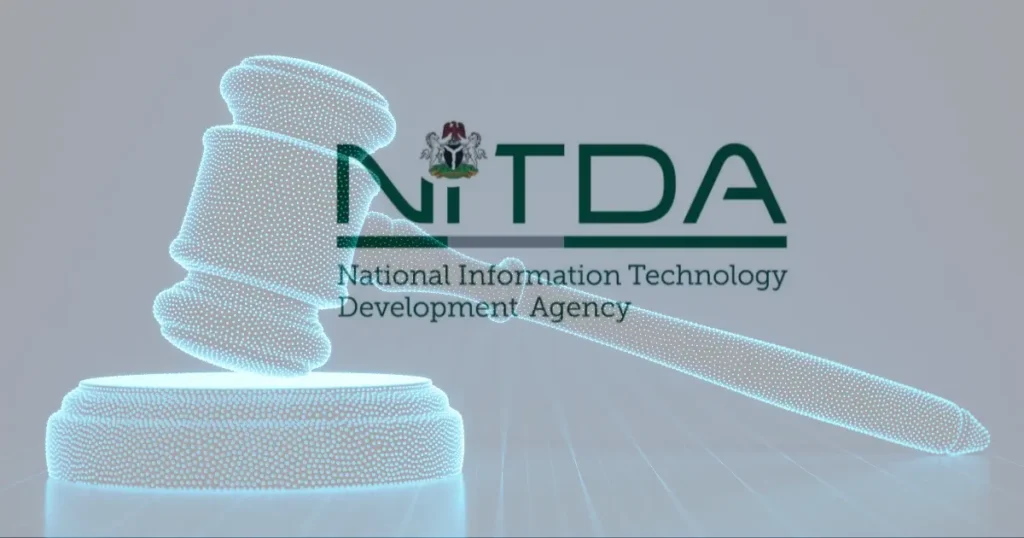
These attacks had terrible consequences. Scams, impersonations, and loss of privacy became the norm. All these discouraged foreign organizations from investing seriously in the country.
The Director of Research and Development, Mr. John Dumesi, said, “Part of the findings and key threat trends we discovered are that data protection policies, enforcement, and disclosure practices are grossly lagging; there is a surge in corporate phishing attacks.”
It was obvious that Nigeria needed a strong data protection policy. In 2023, a data protection bill was passed by the Nigerian government, and here, you’ll learn what the Bill means for Nigerians.
Basic Terminologies in the Data Protection Bill
The bill has a unique language. To help you understand it, here are some definitions you should become familiar with:.
Data controller
Is an individual, private entity, public commission, agency, or any other body that, alone or jointly with others, determines the purpose and means of processing data.
Data Processor
The act describes a data processor as an individual, private entity, public authority, or any other body who processes data on behalf of a data controller or another data processor.
Personal data
Any information that relates directly or indirectly to an identified or identifiable individual by reference to an identifier, e.g., name, age, identity number, location ID, factors specific to the physical, psychological, cultural, social, or economic state of the individual.
Sensitive personal data
The act defined sensitive data as personal data relating to an individual’s
-
- Genetic and biometric data
-
- Ethnic origin
-
- Religious or similar beliefs, such as philosophy or conscience.
-
- Sex life
-
- Health status
-
- Political opinion
-
- Trade union membership
And other information deemed sensitive by the commission.
The Objectives of the Data Protection Bill 2023
The data protection bill for 2023 came on the heels of the NDPR (Nigerian Data Protection Regulation). Eventually, the NDPR was replaced by the NDPA (Nigerian Data Protection Act), due to insufficient policies and weak enforcement.
The primary objective of the bill is to protect the fundamental rights and freedoms of data subjects by regulating the processing of personal data.
The following objectives are stated in the document:
“Protecting data subjects’ rights as well as providing means of recourse and remedies in the event of breaches; ensuring that data controllers and data processors fulfill their obligations to data subjects.”
“Promoting data processing practices that safeguard the security of personal data and the privacy of data subjects; ensuring that personal data is processed in a fair, lawful, and accountable manner.”
“Strengthen the legal foundations of the national digital economy and guarantee the participation of Nigeria in the regional and global economies through the beneficial, trusted use of personal data.”
And finally , “Establishing an impartial, independent, and effective regulatory commission to superintend over data protection and privacy issues and supervise data controllers and data processors.”
Establishment of the Nigerian Data Protection Commission (NDPC)
A law is only as effective as its enforcement. This statement is a known fact all over the world. As a matter of fact, lack of proper enforcement led to the NDPR cancellation. To address this potential problem, the bill made the necessary provisions for its own enforcement.
The task fell to the NDPC (Nigerian Data Protection Commission). According to Section 7 of the bill, the NDPC is to:
1. Promote awareness of risks to personal data and data protection measures. Including the rights and obligations granted under the Act.
2. Ensure the use of technological and organizational data protection measures.
3. Foster the development of personal data protection technologies in accordance with recognized international good practices and applicable international law.
4. Promote awareness of data controllers and processors’ obligations under the Act.
Data Processing Guidelines
The guidelines are very straightforward. Data controllers and processors are not allowed to process sensitive personal data themselves or by a third party unless:
The processing is necessary for exercising or performing the rights or obligations of the data controller or the data subject to underemployment, social security laws, or any other similar laws.
The data subject has given and not revoked consent to the processing for the specific purpose or purposes for which it will be processed.
It is necessary to protect the vital interests of the data subject or of another individual where the data subject is physically or legally incapable of giving consent.
In the situations above, the Data Protection Bill has the following principles:
-
- Data can only be processed for lawful purposes, which must be stated clearly beforehand.
-
- The data subject must have consent before using his or her data. Data subjects also have the right to withhold or withdraw consent at any point.
-
- The data collected must not be used for any other purpose other than the stated one.
-
- For no reason should personal data be stored beyond the necessary timeframe. Also, data subjects can request deletion or destruction of their data by data controllers.
-
- All data must be accurate, with inaccuracies corrected immediately.
-
- Lastly, the integrity of personal data must be kept with the utmost priority.
The NDPC is responsible for enforcing compliance with the rules.
Child Consent
The data protection bill also caters to the data of all Nigerian children. According to the bill, a child is an individual under the age of 18. Section 33 of the bill states that “The data controller must obtain the child’s parent or legal guardian before processing personal data.”
It also emphasizes the use of government-approved identification documents to prove the child’s age and consent. Although this does not apply when:
1. Processing is necessary to protect the interests of the child.
2. The processing is for medical or social care purposes by a professional or similar service provider with a duty of confidentiality.
Data Protection Impact Assessment (DPIA)
Section 28(1) requires data controllers to conduct a DPIA on every project likely to pose a high risk to the rights of data subjects. This is to identify and reduce the risks to data. In the event of high-risk identification, controllers are mandated to consult the NDPB.
Data Breach Management
Data breaches, as a constant threat, have gained the attention of the Nigerian government. So, the bill laid out a proper guide for its management.
The bill mandates data controllers and processors to keep a record of all personal data breaches.
In addition, data controllers are to report every data breach that occurs to the NDPC within 72 hours. However, this timeframe can be extended due to the legal needs of law enforcement.
In the event of a data breach, you can reach out to us. At Johan Consults, we have an expert team ready to help you respond quickly and effectively.
Data Protection Officer and Compliance Services
Section 33 of the bill mandates data controllers and processors of “major importance” to have a data protection officer well-versed in the protection laws and practices.
The DPO can be an employee or outsourced from a data protection service consultancy . Also, the Data Protection Bill 2023 outlines the tasks of a DPO as follows:
advising the data controller, processor, and respective employees on data processing.
– Ensuring compliance with the bill and related policies (GDPR Compliance).
The point of contact for the commission is with the data controller or processor.
International data transfers
Section 43(1)(a) states:
“A data controller or data processor shall not transfer personal data from Nigeria to another country unless the recipient of the personal data is subject to a law, binding corporate rules, contractual clauses, code of conduct, or certification mechanism that affords an adequate level of protection with respect to the personal data, or a permitted condition outlined in Section 45 of the Bill.”.
In a nutshell, data from Nigeria can only be transferred to countries with adequate data protection laws.
Data Protection Bill Penalties
Lastly, the bill contains penalties for non-compliance. The bill groups controllers and processors into two.
The data controllers and processors of “major importance” and others.
For data controllers and processors of major importance, the penalty shall be greater than NGN 10 million and 2% of their annual gross revenue from Nigeria in the preceding financial year.
For others, the fine is NGN 2 million and 2% of the annual gross revenue from Nigeria in the preceding financial year.
NDPA and NDPR
The Nigerian Data Protection Regulation (NDPR), regulated by the NDPB (Nigeria Data Protection Bureau), was ousted by the NDPA in 2023. While the Nigerian Data Protection Act covers most of the NDPR, it lacks the specificity of the latter. The major difference between the two lies in the definition of terms.
-
- The NDPA broadens the scope of “sensitive data” by including biometric data, genetic data, and data relating to the subject’s philosophy or conscience.
-
- Under the NDPA, a change was made to “data breach.” To include situations that will “likely lead to” accidental or unlawful destruction, loss, alteration, unauthorized disclosure of, or access to personal data transmitted, stored, or otherwise processed. This has a broader scope than the NDPR.
-
- Under the NDPR, every data controller must appoint a Data Protection Officer (DPO). This is not so in the NDPA; DPO is now limited to data controllers of importance.
In summary, the NDPA and NDPR are more similar than different. In times where there is a conflict between the two, the NDPA overrules any other.
NDPA and GDPR
The Nigerian Data Protection Act (NDPA) and the General Data Protection Regulation (GDPR) are the regulations for data protection in Nigeria and the EU, respectively.
Non-compliance with the GDPR comes with a fine of up to 4% of the annual global profit, or €20 million, whichever is higher. This is higher than the NDPA penalty.
In summary, the bill is a significant step by Nigeria towards safeguarding personal data in Nigeria. Although not as comprehensive as the GDPR, it is sufficient.
By ensuring international data transfer compliance and imposing penalties for non-compliance, the bill protects data subjects’ rights and boosts Nigeria’s participation in the global digital economy.
Data Protection Impact Assessments (DPIA)
With advancements in technology, the process of collecting and storing data was expected to be smooth. Unfortunately, the use of the internet for data collection and transfers exposes it to more threats.
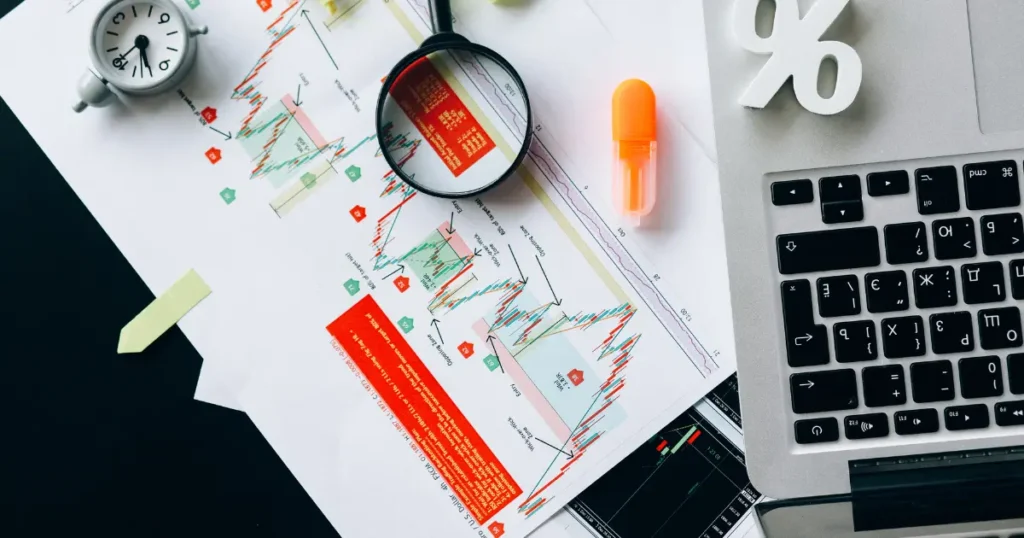
The owners of the data collected are now vulnerable, as their data can suffer accidental loss or compromise. In the wrong hands, sensitive data can be destructive, e.g., impersonation, targeted attacks, and the like.
What do organizations do then? They devise means of safeguarding data, guided by data protection laws around the world. As a precautionary measure, data controllers (entities that collect and determine the purpose of data processing) are required to carry out a data protection impact assessment.
What is a Data Protection Impact Assessment (DPIA)?
Data Protection Impact Assessment is the process used to determine the level of risks involved with collecting personal data for a project. All projects come with risks, as long as data is involved. The main issue is how prepared data controllers are to contain the risks.
Given that it is impossible to fight an unknown enemy, the purpose of a DPIA is obvious. A Data Protection Impact Assessment will identify the risks and also find ways to reduce the impact.
The Importance of A DPIA
Organizations stand to lose everything unless they perform DPIA. Think about it: no one would keep money in a bank prone to robberies. The same principle applies in this case. Clients trust organizations to keep their data safe, and regular data loss or compromise does nothing to keep the trust. Rather, it will do enough damage to shut down a company.
A DPIA ensures data controllers are aware of risks to data and ready to curtail them even before data processing commences. That way, threats to organizations’ reputations are averted.
Besides that, organizations can avoid penalties of data protection laws around the world. The GDPR, for example, deems a DPIA necessary under certain circumstances. The same goes for the Data Protection Bill 2023 of Nigeria. So, carrying out a Data Protection Impact Assessment is important to achieve GDPR compliance.
When Is A DPIA Required?
According to the Nigeria Data Protection Regulation (NDPR), it is necessary in situations where they process highly sensitive data. Sensitive data under the NDPR refers to personal data relating to an individual’s:
-
- Race, ethic, or origin
-
- Genetic and biometric data
-
- Political opinions
-
- Health
-
- Sex life
And others, as determined by Section 30(2) of the NDPR.
A DPIA is required when the data handled belongs to sensitive or differently-abled subjects.
Systematic monitoring, large-scale profiling, automated decision-making with legal effects, and the application of new technological solutions are some of the situations that need a DPIA.
On the flipside, data protection impact assessment is not required where data processing is not likely to result in high risk to rights and freedoms of persons.
Who Should Be Included in DPIA?
The controller is 100% responsible for carrying out the DPIA. Other groups are involved in the process, but the data controller is held most accountable.
Now, the data controller may choose to outsource the responsibility to a third party. Especially when the organization lacks the expertise or personnel to conduct it. A project deemed risky may also warrant the use of a data protection service consultancy.
Since the process is likely to affect several aspects of a project, it is necessary to involve engineers, developers, and designers. They will be able to shed more light on the DPIA process. The data protection impact assessment should be carried out with the utmost care. This requires a team of professionals well-versed in the DPIA process.
Whether overseen internally by the organization or outsourced to a consultancy, the GDPR and the Data Protection Bill mandate the appointment of a Data Protection Officer (DPO).
Who is a DPO?
A Data Protection Officer is a person overseeing the process of a Data Protection Impact Assessment. A DPO can be outsourced by a data protection service consultancy if an organization lacks the personnel for it.
Lastly, data subjects must be involved when carrying out a DPIA. This will show transparency while taking the concerns of the subjects into consideration.
How to Do a DPIA
Conducting a data protection impact assessment is serious business. Doing it the wrong way can cost an organization valuable time and money.
To make the process simpler, here is a DPIA template you can follow.
Step 1: Identify the need.
It will be futile to carry out a Data Protection Impact Assessment where it is not important. Below are some questions to determine if it’s necessary.
-
- Does your data involve processing personal data on a large scale?
-
- Does your project involve data transfer?
-
- Does your data processing include the data of vulnerable people?
-
- Does your data processing include profiling and predicting?
-
- Does your data processing include datasets that have been matched or combined?.
Step 2: Context
If you answered yes to any of the above questions, then you can move on to this step.
Here, you have to be clear and specific.
-
- What is the purpose of this data processing?
-
- What does it aim to achieve?
-
- What are the benefits?
Be as detailed as possible.
Step 3: Describe the flow of information.
-
- How will you collect the data?
-
- How will you store the data?
-
- Who has access to it?
-
- How will you share? Etc.
For extra clarity, make use of a flow diagram.
Step 4: Identify and assess the privacy risks.
Make a list of the identified risks, their impacts, and the likelihood of their occurrence.
Step 5: Make a risk-reduction plan.
Once the risks have been identified, the next step is to create a counterplan.
How do you intend to curtail the effect of each of the risks? Document your plans, leaving no stone unturned.
The expected result of the counterplan should also be documented.
Step 6: Delegation
Assign a part of the process to several personnel for greatest effectiveness. Record who oversees what and the stipulated time frame for the activity.
Step 7: Reassess the Entire System
Double-check all the identified risks, impacts, and likelihoods against the control methods.
This will cut all loopholes.
These 7 steps are enough to get an idea of how to conduct a Data Protection Impact Assessment.
DPIA vs. PIA
The Data Protection Impact Assessment and Privacy Impact Assessment (PIA) are tools that organizations use to estimate privacy risks to personal data in projects.
While the former is a specific and mandatory requirement of the GDPR, any organization can use PIA to assess the privacy impacts of their activities.
DPIA is legally necessary in certain cases within the EU, while PIA is the best data protection practice and privacy compliance globally.
Data Protection Service Consultancy
Data protection is a necessity for every functioning organization. While it is important, most organizations need assistance in the form of data protection service consulting.
In this segment, you can expect to know what a data protection service consultancy is, its needs, the services, and how to choose the right consultancy.
What is a Data Protection Service Consultancy?
It is a service that provides organizations (data controllers) with expert advice and help on how to protect sensitive data from loss, compromise, or unauthorized access in their possession.
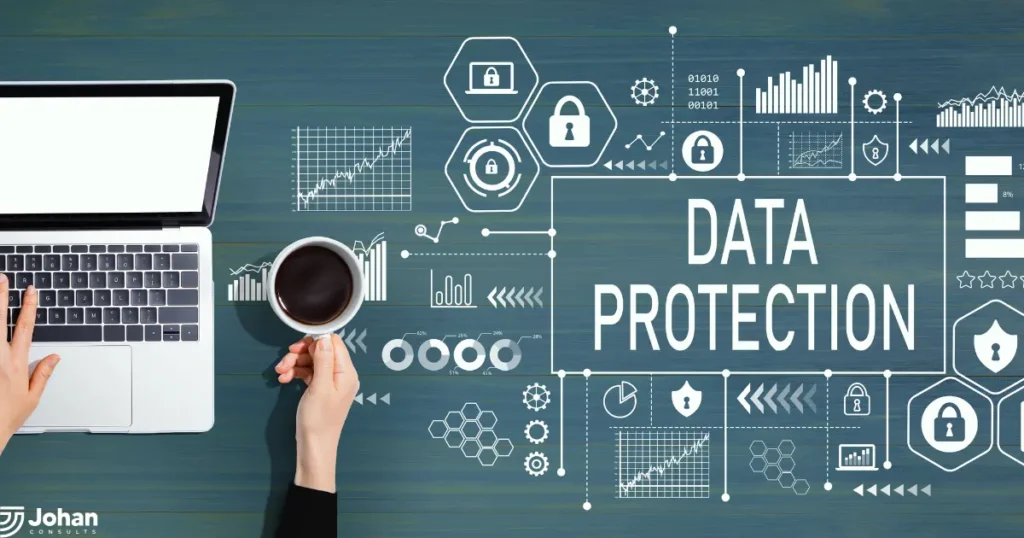
Data protection service consulting includes a general assessment of the existing system. compliance with data protection regulations and the identification of potential data breaches. This service may also include employee training on safeguarding data.
What is the need for Data Protection Service consultation?
Data collection, processing, and use form the core of every organization, small or large. In recent times, there has been a rise in ransomware and phishing attacks on companies’ databases. Hence, there is a need to protect data from such threats, mishandling, and loss.
Due to the importance of data protection, several laws and regulations, like the NDPA, have been established. These guide businesses on how to protect the sensitive information of their clients, making the process more complex.
On one hand, organizations need to protect data; on the other, they do not know how. This is where data protection service consulting comes in. At a cost, organizations can have their entire data security system appraised and updated by agencies well-versed in the area.
Services Covered by Data Protection Consultancy
1. Data Protection Audits
This is the process that takes a critical look at the data protection practices of an organization to determine its effectiveness. Data Protection Audits are important for businesses to identify inadequacies in their protection systems.
Are data protection audits compulsory?
Yes, they are. As a matter of fact, the ICO (Information Commissioner Office) has the power to carry out compulsory audits of organizations according to S146 of the Data Protection Act, 2018. So, if you know anything about protecting data, you might want to have an audit as soon as possible.
2. Data Protection Impact Assessment (DPIA)
DPIA is a process that helps identify and reduce the data protection risks associated with a project. DPIA is carried out when a project is large, deals with personal data, or processes data belonging to sensitive individuals.
A data protection service consultant will help determine the extent of the risk and provide you with a solid plan on how to reduce it to the minimum. Not sure if you need a DPIA? Check the ISO checklist.
3. Data Protection Training
Training is an important part of data protection service consulting. where staff and stakeholders of organizations are educated on the laws, regulations, and best practices in data protection. The scope of the training largely depends on what the business needs.
For example, a company finding it difficult to follow GDPR will undergo GDPR compliance training. It is also important that data protection training be conducted at reasonable intervals.
4. GDPR Compliance
The General Data Protection Regulation (GDPR) is a set of rules made to protect the data of citizens of the European Union (EU). The consequences of non-compliance with these rules can be dire—up to 4% of annual global turnover, or €20 million.
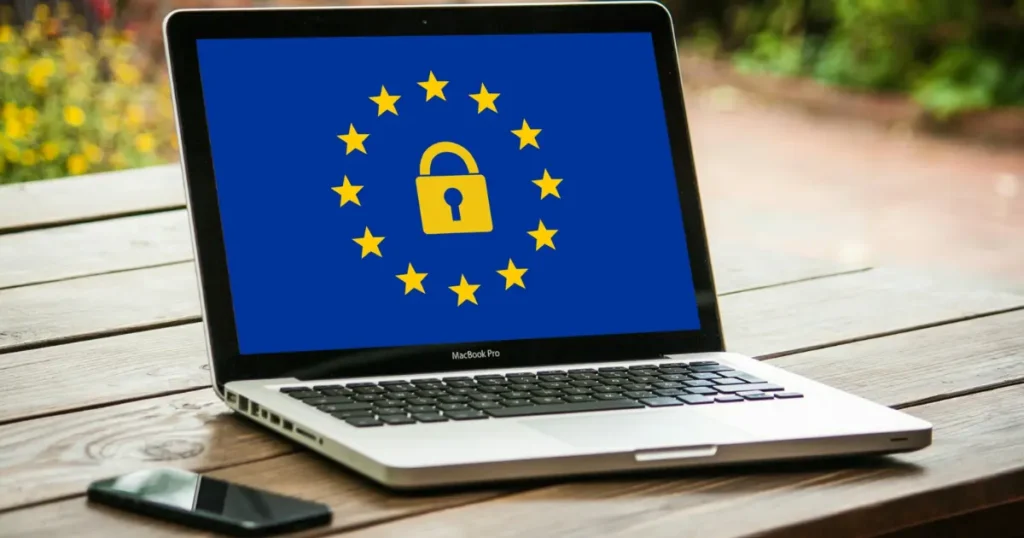
As part of the activities covered, a consultancy will check your organization’s data protection system for inadequacies and offer assistance to ensure it becomes or stays GDPR compliant.
5. Outsourced Data Protection Officer (DPO)
Data protection consultancies also help organizations comply with regulations like the GDPR by assigning a professional well-versed in the laws and practices of data safety.
Data Protection Officer: Why You Need One
Running a business in this economy is tough. Every naira counts, and every decision feels like a tightrope walk. Between managing staff and staying ahead of the competition, there’s so much to juggle.
But here’s the thing: a hidden threat beneath the surface is a data breach waiting to happen. Data breaches are real, and businesses are easy targets. So, what can you do? That’s where a DPO comes in. A DPO helps your business follow the regulations stated in the data protection bill.
What is a Data Protection Officer?
A data protection officer ensures an organization follows data protection laws and regulations.
What is the Role of a Data Protection Officer in Business? CLICK HERE for more information.
6. Data Localization
Data localization is the act of keeping data in the region it originated from. For example, if an organization gets data from Nigeria, they store the data in Nigeria. In times when data can be transferred over the internet at lightning speed, the movement of data and its use have the interest of all data protection stakeholders.
Consultancies help businesses localize data by offering data centers or cloud services that have data centers in the required locations. This data protection service reduces the cost of setting up several data centers from scratch for businesses operating in many countries and offers premium data protection.
7. Data Breach Management
Even enterprises with the strictest systems fall victim to data breaches once in a while. What is more important is how it is managed.
Consultancies offer this service to help organizations overcome such occurrences by creating and initiating an incident response plan, assembling an incident response team, and sending public notifications.
8. Data Digitization
Data digitization is the process of converting analog information to digital format. Organizations handling significant amounts of sensitive data must use this service.
These include financial institutions, legal practices, and medical facilities. The digitization of data makes it easier for them to protect the personal data of their clients.
At Johan Consults, you can digitize your data with utmost precision. Click here for more inquiries.
How to Choose the Right Data Protection Service Consultancy
When it comes to protecting data, one size does not fit all. For that, selecting the right consultancy is of utmost importance. Considering the rise of data breaches and threats, you should check the following factors to ensure you choose the right data protection consultancy:
One factor to consider is the level of expertise and experience of the consultancy. How long have they been in the business? What is the success rate of their projects so far? How fatal were the instances of failure? Review the client’s testimonials to learn about their reputation.
What else to consider when choosing a consultant is the collaborative skills of the consultant. It takes a team to successfully implement data protection, and the consultant must possess good communication skills.
Lastly, the right data protection service consultancy must have an in-depth understanding of data protection regulations. As a business with operations in Nigeria, it’s best to use a consultancy specialized in the NDPA (Nigerian Data Protection Act) and NDPR-licensed.
What is the cost of data protection consulting services?
The costs of data protection consulting services vary depending on several factors. Factors like the differences in the level of expertise, area of specialization, and location affect the cost.
By all means, cost is an important factor to consider when choosing a data protection service consultancy. Although this shouldn’t be the core criteria, the value you are getting should be.
Data protection service consulting is necessary for enterprises trying to protect their data. It assists organizations in navigating the complex nature of protecting data.
It can help you avoid high fines and loss of customer trust and interest in your company. You can help your company’s PR by taking your data protection seriously. This is why you need to choose the right data protection service. Don’t settle for a one-size-fits-all approach.
Wrapping It All Up
Safeguarding data is very important to your business, and it requires immediate attention. Examine your company’s data protection system, make use of suitable protection practices, ensure compliance with the GDPR and other local laws, and stay on top of data security trends.
Although juggling data protection with the rest of the activities in your organization can be a bit stressful, you can always explore data protection service consulting.
Johan Consults can help you with a customized plan that safeguards your sensitive information so you can focus on what you do best—running your business. Johan Consult is a consultancy that boasts a proven track record and a deep understanding of data protection regulations in Nigeria, Kenya, and the United Kingdom.
Take action today and safeguard your future with Johan’s Data Protection Consultancy.

